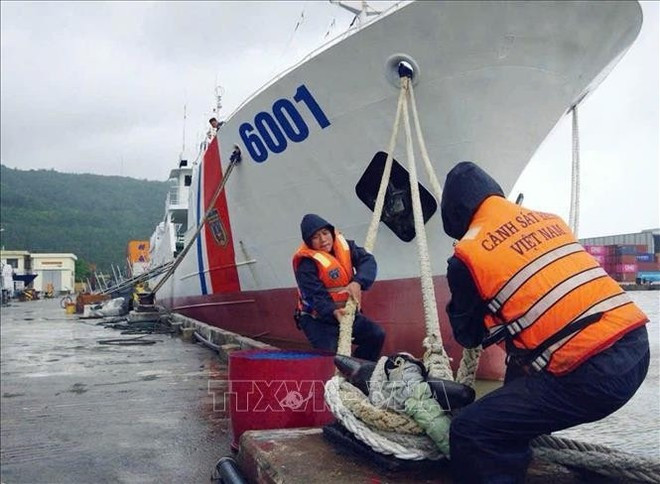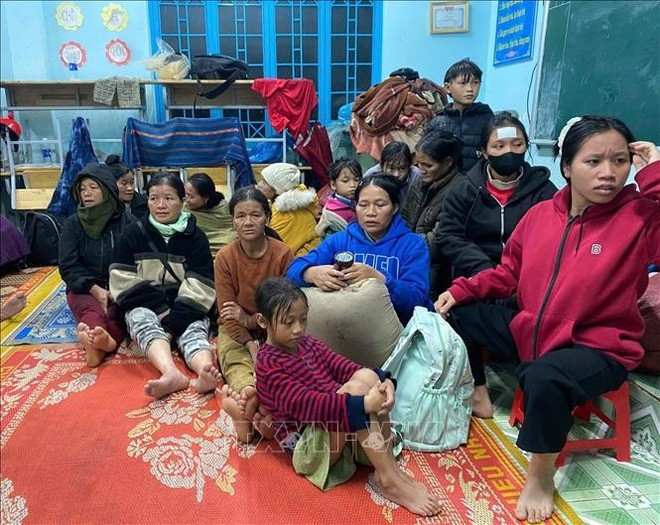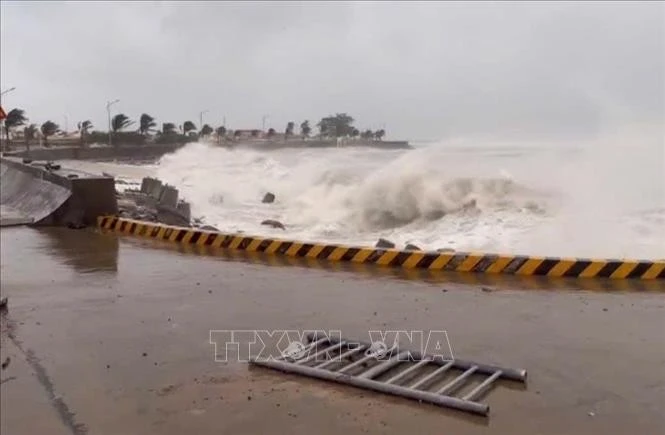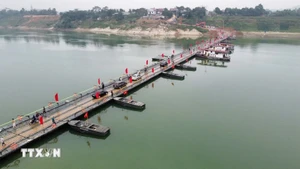On November 6, Dak Lak province issued an urgent dispatch requiring all departments, agencies and communes to urgently carry out storm preparedness and evacuation plans. Local authorities were instructed to ban all marine activities, ensure that no residents remain on fishing boats or aquaculture cages, and prohibit road travel in storm-affected areas from 16:30 the same day, except for rescue and security forces.
By late afternoon, all 7,976 residents in high-risk zones vulnerable to flooding or landslides had been safely relocated. The provincial Military Command has mobilised nearly 3,900 soldiers, 34 vehicles, and 60 specialised rescue units, while the Border Guard has helped evacuate over 200 households from landslide-prone areas. The provincial police have deployed 379 officers to guide traffic and maintain public order.
Provincial authorities have also ordered the lowering of water levels at hydropower and irrigation reservoirs to prevent dam overflow and flash flooding. Residents were instructed to reinforce homes, secure crops, and trim trees ahead of expected strong winds and heavy rains, forecast to reach 200–400mm in eastern parts.
In Lam Dong province, the Department of Education and Training has directed all schools to assess the safety of classrooms, dormitories, power lines, and trees; and suspend classes in flood- or landslide-prone areas. Schools have been told to prepare emergency food, water, medicine, and backup power for boarding students.
Local authorities have also stepped up public awareness campaigns, reminding parents and students not to cross flooded areas or engage in outdoor activities during the storm. With over 800,000 students enrolled in 1,605 schools across the province, early preparedness is seen as crucial to minimising damage and ensuring safety as Typhoon Kalmaegi brings a high risk of flash floods and landslides.

In Da Nang, the Viet Nam Coast Guard Region 2 Command has been placed on full alert. Major General Le Dinh Cuong, Commander of the Viet Nam Coast Guard, inspected storm preparedness measures, emphasising the principle of “on-site readiness” and the “four-on-the-spot” approach - manpower, materials, command, and logistics.
The Coast Guard has strengthened infrastructure, warehouses and facilities, and mobilised 13 vessels and eight vehicles for rescue missions. Additional mobile units have been stationed along rivers and coastal areas to assist fishermen and guide ships to safe anchorage. Around 90 temporary shelters have been prepared to host evacuees if needed.

In Quang Ngai province, where the storm is expected to make landfall with winds of up to levels 14-15 (150-183 km/h), authorities have evacuated more than 2,000 residents from low-lying areas in Long Phung commune to reinforced community shelters and schools.
Chairman of the provincial People’s Committee Nguyen Hoang Giang affirmed that protecting human life is the top priority. He added that local authorities have built detailed post-storm recovery plans to help residents quickly return home once conditions improve.
The province has mobilised youth and militia forces to help residents secure homes, move livestock, and stockpile essential supplies. With seven coastal communes - Sa Huynh, Tra Cau, Duc Pho, Khanh Cuong, Nguyen Nghiem, Dang Thuy Tram and Lan Phong - identified as at the storm’s centre, inspection teams have been dispatched to each site to direct anti-storm efforts.
















